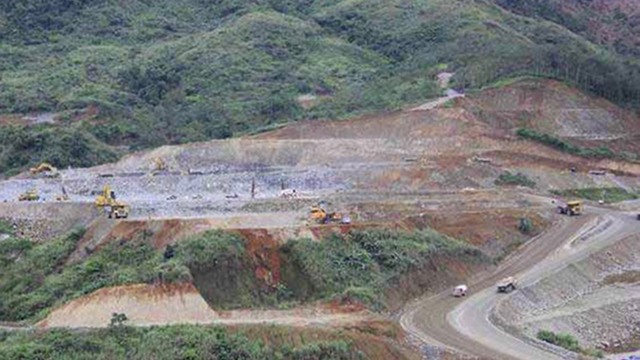SUMMARY
This is AI generated summarization, which may have errors. For context, always refer to the full article.

MANILA, Philippines – Australian miner OceanaGold Corp. reluctantly paid excise taxes to proceed with the first shipment of copper-gold concentrates in its Didipio mine in Nueva Vizcaya province.
“We paid the excise taxes under protest to the BIR,” OceanaGold president Joey Leviste said in a text message on Wednesday, March 13.
He declined to disclose how much taxes they paid but reiterated why they were protesting it. “We have a 2007 BIR Ruling which says we are exempted (from paying taxes) during the recovery period.”
“Transportation of copper-gold concentrate from the Didipio mine site to port has resumed. Approximately 9,000 tons of copper-gold concentrate has been produced to date with one-third of this delivered to the port thus far,” OceanaGold said in a statement.
“The trucking capacity is being increased to reduce the site stockpiles of concentrate in advance of the first shipment from the port in April,” it added.
The timing of tax payments was at the core of why the first shipment of copper-gold concentrates from the Philippines’ first fully foreign-owned large scale mine did nor proceed as planned on February 25.
OceanaGold had said its Didipio mine is covered by a 5-year tax exemption period under its Financial and Technical Assistance Agreement (FTAA) permit.
From the approval of the Declaration of Mining Project Feasibility up to the end of the recovery period, an FTAA contractor is suppose to be exempt from corporate income tax, customs duties and fees on imported capital equipment, value-added tax on imported goods and services, withholding tax on interest payments on foreign loans and on dividends to foreign stockholders, and other national taxes, except excise tax on minerals.
The Bureau of Internal Revenue (BIR), however, insisted through a circular that a 2% excise tax was triggered when the mine started processing ores in December 2012.
“FTAA contractors are liable to pay the taxes due under the NIRC (National Internal Revenue Code) and existing rules and regulations during and after their “recovery period,” said BIR commissioner Kim Henares in memorandum circular No. 17-2013 issued on February 15.
The circular states that FTAA holders must pay the income tax after the income tax holiday granted to them has lapsed.
The Didipio mine is the first mining tenement in the Philippines to operate under the FTAA regime.
OceanaGold has mines in South Island of New Zealand and in the Philippines.
Mines and Geosciences Bureau (MGB) director Leo Jasareno said the bureau has formed a team to communicate with OceanaGold on the matter. – Rappler.com
Add a comment
How does this make you feel?
There are no comments yet. Add your comment to start the conversation.